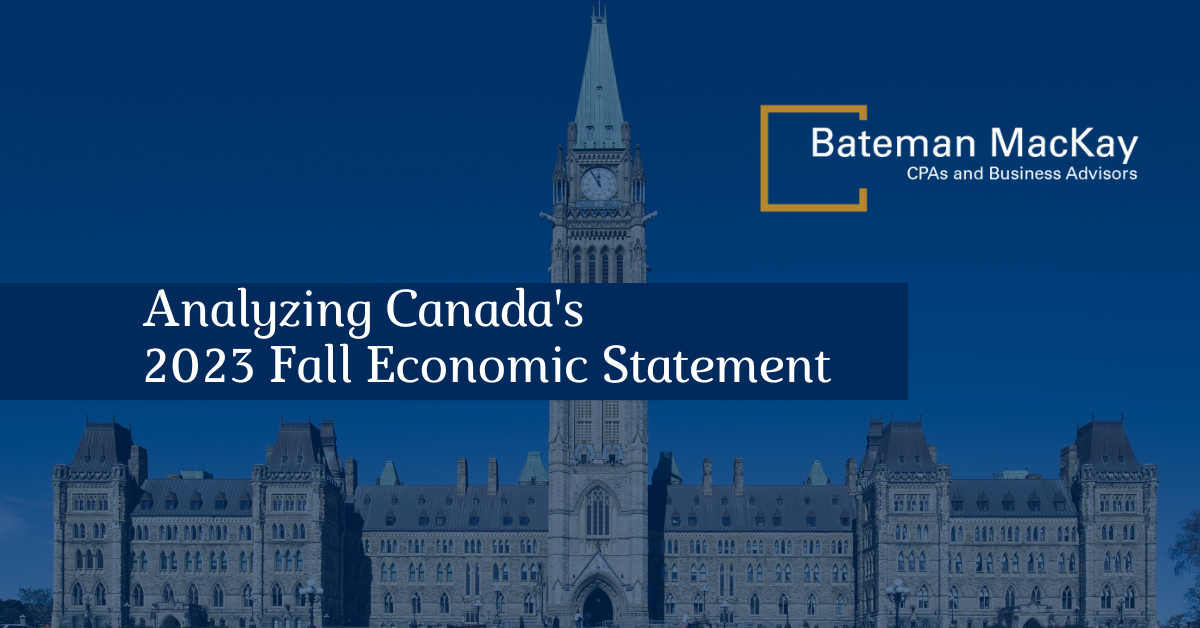
The 2023 Fall Economic Statement, (The Statement), delivered by Finance Minister Chrystia Freeland, outlined some changes to Canada’s tax landscape. The Statement did not include any changes to personal or corporate tax rates while forecasting a deficit of $40 billion for 2023-24, which aligns with this year’s Federal Budget. Looking ahead, deficits of $38.4 billion and $38.3 billion for 2024-25 and 2025-26 respectively, are significantly higher than projections from this year’s Federal Budget. This article delves into the key aspects of these changes and their implications for business and property owners.
The Underused Housing Tax (UHT) has undergone several delays and changes since its original announcement in 2021. The Statement makes further changes, most notably removing the filing obligation for 2023 and subsequent taxation years for specified Canadian corporations, partnerships and trusts. Taxpayers who own residential property with a corporation, partnership or trust should note that the requirement to file still exists for the 2022 tax year, which currently has a filing deadline of April 30, 2024. Other minor technical changes and a reduction in the minimum failure to file penalties were also introduced.
First introduced in Budget 2023, Employee Ownership Trusts (EOT) are a new structure for employees to obtain an indirect equity interest in a business. An EOT is a form of employee ownership where a trust holds shares of a corporation for the benefit of the corporation’s employees. The Statement introduces a temporary tax exemption for certain capital gains realized on the sale of a business to an EOT, applying to the first $10 million in capital gains realized on the sale. This change is intended to be implemented for the 2024, 2025 and 2026 tax years.
The Statement comments upon the existence of certain short-term rental operations whereby the operations occur in provinces and municipalities that prohibit short-term rentals. In addition, situations exist where the short-term rental operator is not compliant with the applicable licensing, permitting or registration requirements. Such non-compliant taxpayers will no longer be able to claim certain income tax deductions related to expenses incurred on or after January 1, 2024, from short-term rental income.
First announced in the 2023 Federal Budget, the Statement provides more details on these clean economy tax credits with the intention to release legislation in 2024.
These are relevant highlights from the 2023 Economic Statement. To see the full statement, visit Canada.ca. If you have questions about these or any other tax issues, reach out to a Bateman MacKay Business Advisor. Make sure to subscribe to our blog for other tax, accounting and business advisory updates, including the 2024 Federal Budget, expected to be tabled in the Spring of 2024.
Sign up for our newsletter and receive tax, accounting, and business advisory resources for your business!